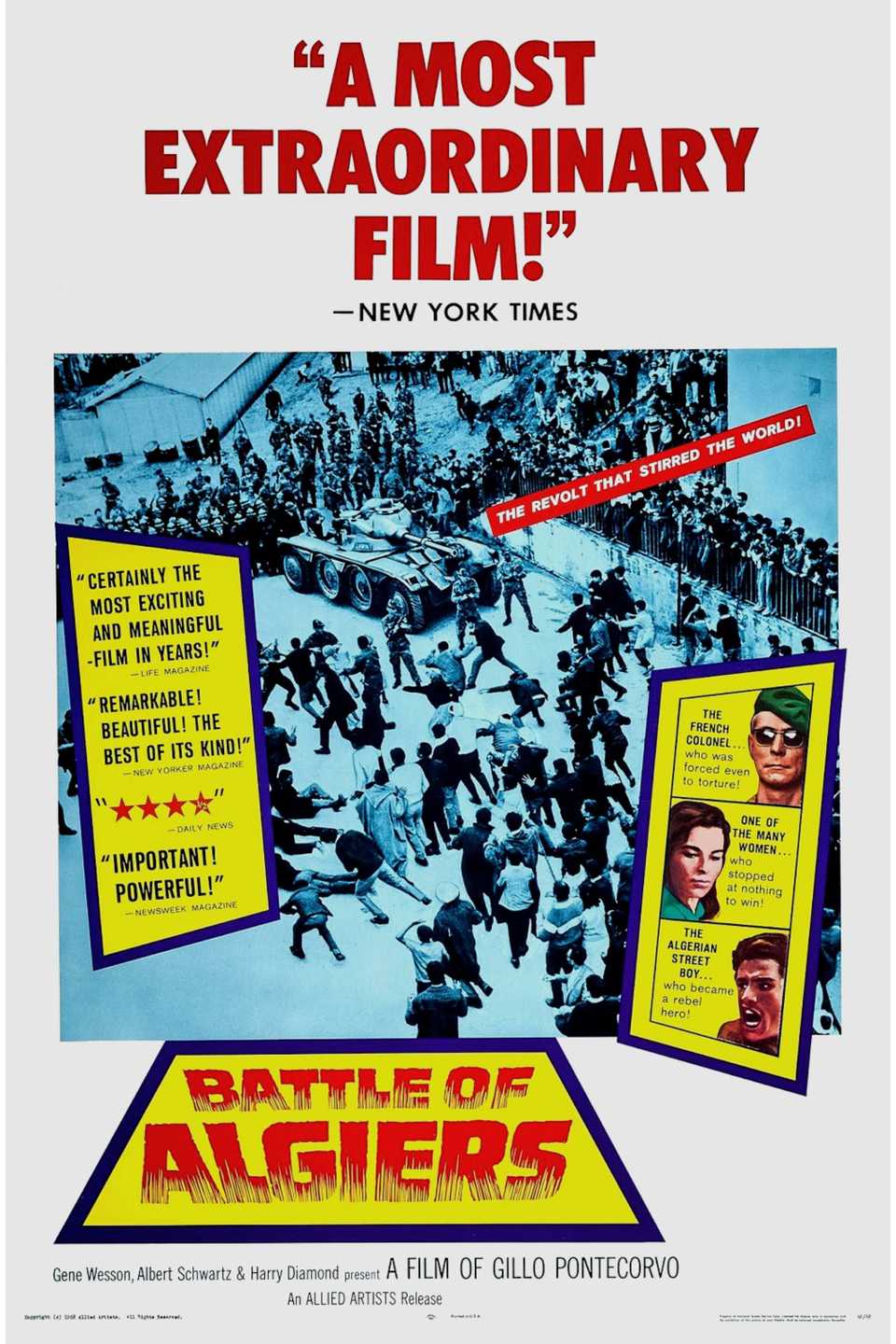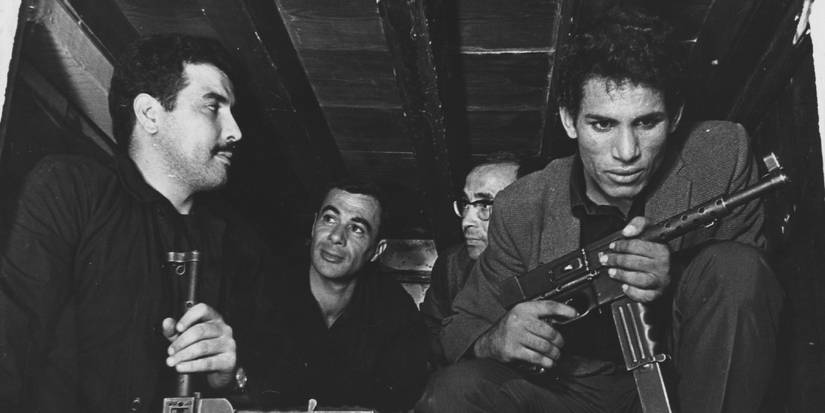What do Paul Thomas Anderson’s One Battle After Another, Quentin Tarantino’s Inglourious Basterds, and Tony Gilroy’s Andor all have in common? Aside from critical acclaim, all three draw heavy inspiration from the 1966 Italian-Algerian war film, The Battle of Algiers. Directed by Gillo Pontecorvo, The Battle of Algiers chronicles the conflict between the FLN rebels and the French government from 1954 to 1962, with a particular focus on the titular Battle of Algiers, which took place from 1956 to 1957.
The Battle of Algiers is one of the crowning achievements of the Italian neorealism movement, as the movie employs many non-professional actors who lived through the conflict and is shot in a black-and-white documentary style that lends the movie added realism. Filmmakers from Stanley Kubrick to George Miller to Christopher Nolan have cited it as a significant influence, and it is often regarded as one of the greatest movies ever made. It’s also a film that can easily be watched on HBO Max.
‘The Battle of Algiers’ Initial Response, Controversy, and Impact
The Battle of Algiers presents the central conflict from the perspectives of both the FLN rebels and the French military leadership. The conflict largely centers on two characters, FLN guerrilla soldier Ali la Pointe (Brahim Hadjadj) and Colonel Philippe Mathieu of the French army (Jean Martin). The movie was backed by the Algerian government and adapted from Souvenirs de la Bataille d’Alger, the memoir of Algerian commander Saâdi Yacef, who later became a French prisoner.
The Battle of Algiers has been hailed as one of the greatest films of all time since its release, winning the Golden Lion at the Venice Film Festival. It was nominated in two separate Academy Award ceremonies: first in 1966 for Best Foreign Language Film and then in 1968 for Best Adapted Screenplay and Best Director, a rare feat for an international film at the time. However, the film was met with backlash from French critics, with some even refusing to attend the movie’s premiere at the Venice Film Festival. Because the film was critical of France’s imperialism, The Battle of Algiers was banned in France for a year and did not premiere in the country until 1971, as it could not find distribution.
In 1968, reporter Jimmy Breslin described The Battle of Algiers as a “guerrilla warfare training film.” While a bit hyperbolic at the time, the film did seem to inspire many 20th-century political activist movements, as well as the United States government. In his 2004 retrospective, Roger Ebert noted that The Battle of Algiers “was shown by the Black Panthers and the IRA to their members, and in September 2003, the New York Times reported that the movie was being shown in the Pentagon to military and civilian experts.”
In the years since, The Battle of Algiers has become a touchstone picture. In 2025, it ranked number 12 on Rotten Tomatoes‘ list of the 300 best-reviewed movies of all time. The Battle of Algiers ranked number one on The New Republic‘s The 100 Most Significant Political Films of All Time back in 2023. It has also left a lasting impact on pop culture, which is evident in some of the most beloved movies and television shows of the 21st century.
‘The Battle of Algiers’ Impact on Pop Culture Is Felt Nearly 60 Years Later
Given The Battle of Algiers‘ iconic status, it has inspired fellow filmmakers for nearly six decades. The most recent use of the film was in Paul Thomas Anderson’s critically acclaimed One Battle After Another. Bob (Leonardo DiCaprio) is seen watching The Battle of Algiers on television before receiving the call that he and his daughter are in danger. Paul Thomas Anderson even cited The Battle of Algiers as a direct influence on One Battle After Another, suggesting it as one of the five films on Turner Classic Movies to prepare before seeing his latest film.
Quentin Tarantino is known for drawing inspiration from numerous cinematic sources, and The Battle of Algiers has a direct connection to Inglourious Basterds, described by many as the director’s best film. Composer Ennio Morricone’s track “Algeri: 1 Novembre 1954” is repurposed in Inglourious Basterds as the titular group’s theme music, and notably plays when they recruit Sgt. Hugo Stiglitz. Tarantino would later collaborate with Morricone on The Hateful Eight.
One of the most striking inspirations that The Battle of Algiers has had in recent memory is Disney+’s Andor. The original Star Wars trilogy focused on a Rebel Alliance, and Andor‘s creator, Tony Gilroy, sought to use the guerrilla film about a real-life rebellion movement to color the world of Star Wars. Cassian Andor’s journey in Season 1 is closely modeled after Ali La Pointe, who grows from an outsider to a rebel figure who will die before seeing their rebellion achieve its goals.
The planet of Ferrix appears to be modeled after Algiers, while the series adopts the structure of The Battle of Algiers, showing the conflict from both the Rebel and Imperial forces’ perspectives and how one side responds to the other. The climax of Andor‘s Season 1 strongly evokes the uprising at the end of The Battle of Algiers, which led to Algeria gaining its independence from France.
Next year will mark the 60th anniversary of The Battle of Algiers’ premiere. The film remains as timely and relevant now as it was when it was first released. If you want to see one of the most important films of all time, which has also inspired some of the most popular media of today, along with many of the greatest filmmakers ever, The Battle of Algiers is now streaming on HBO Max.

- Release Date
-
September 20, 1967
- Runtime
-
121 Minutes
- Director
-
Gillo Pontecorvo
- Writers
-
Franco Solinas, Gillo Pontecorvo

